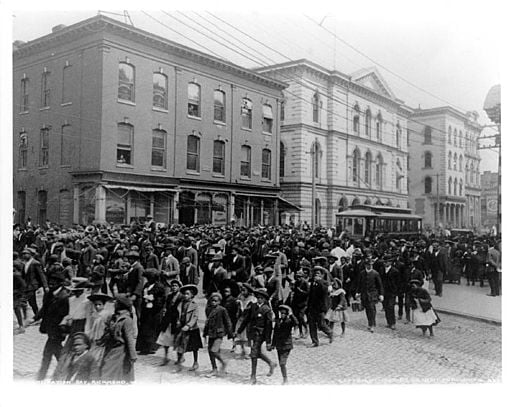Juneteenth is a day of commemoration that honors the end of slavery in the United States. It is celebrated on June 19th, and it holds great significance to African Americans and the nation as a whole. As more attention is brought to the history of systemic racism and oppression, understanding the importance of Juneteenth is more crucial than ever before. In this article, we’ll explore the origins of Juneteenth and why it matters.
Juneteenth: What It Is and Why It Matters
Juneteenth is also known as Freedom Day, Jubilee Day, and Emancipation Day. It marks the day in 1865 when Union General Gordon Granger arrived in Galveston, Texas, and announced that all enslaved people were now free. This proclamation was made two and a half years after the Emancipation Proclamation was signed into law by President Abraham Lincoln.
Juneteenth is a day of celebration, reflection, and education. It is a time to honor the struggles and sacrifices of those who fought for freedom and justice. It is also an opportunity to recognize the ongoing work that needs to be done to address systemic racism and inequality in our society.
In June 2021, Joe Biden signed legislation making Juneteenth a federal holiday. Apart from Washington, D.C., other states give certain workers the day off without declaring it a legal holiday.
Uncovering the History and Celebrations of Freedom Day
The history of Juneteenth dates back to 1865, but it wasn’t until the Civil Rights Movement of the 1960s that it began to gain more widespread recognition. Today, Juneteenth is celebrated in various ways, including parades, picnics, barbecues, and festivals. It is also a time for reflection and education, with lectures, discussions, and other events focused on the history of slavery and its legacy.
One of the most significant events on Juneteenth is the reading of the Emancipation Proclamation. This document, signed by President Lincoln on January 1, 1863, declared that all enslaved people in the Confederate states were now free. However, it took more than two years for this proclamation to reach Texas, where the last enslaved people in the United States were held.
Another important aspect of Juneteenth is the food. Traditional Juneteenth foods include barbecue, red foods (such as watermelon and red velvet cake) to symbolize the bloodshed and resilience of enslaved people and soul food dishes like fried chicken and collard greens.
celebrations also often feature music and dance. Traditional African American music genres like blues, jazz, and gospel are often played, and African dance and drumming may be performed.
As the Black Lives Matter movement has gained momentum, Many people are using the day as an opportunity to protest against police brutality and racial injustice, as well as to celebrate Black culture and history.
Juneteenth is a vital reminder of the struggle for freedom and justice that has been fought throughout American history. It is a time to honor the sacrifices of those who have come before us and to continue the work of creating a more equitable society. By understanding the significance and participating in its celebrations and events, we can help to create a more just and inclusive future.
Image Credit
VCU Libraries, Public domain, via Wikimedia Commons

